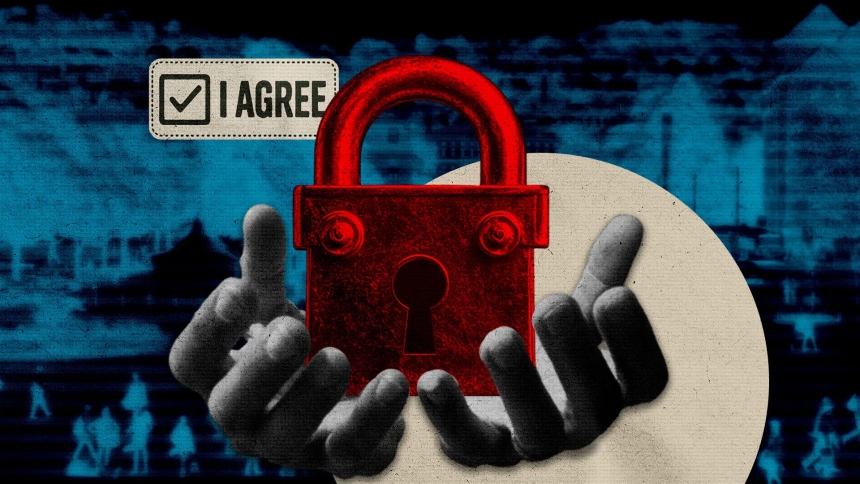
In today’s connected world, everyone claims to care about privacy. We click “I agree” with hesitation, disable cookies on websites, and talk about protecting personal data — yet we still share our locations, faces, habits, and thoughts online every single day.
This contradiction is what experts call the modern privacy paradox — the gap between what we say about valuing privacy and how we actually behave online. From signing up for “free” apps to accepting tracking for discounts or convenience, most of us exchange privacy for small, instant rewards without realizing the long-term cost.
So why do we keep giving away our data even when we know the risks? And what can we do to regain control without giving up modern conveniences?
We’re not careless — we’re human. Technology is designed to make sharing easy, fast, and rewarding. Several psychological and social factors explain why people willingly give up privacy:
Our digital lives are built for speed. Whether it’s auto-login features, location-based apps, or “smart” devices that anticipate our needs, convenience often outweighs caution. The easier it is to use a service, the less we question what data we’re trading for it.
Example: We allow food delivery apps to track our location because it saves us the effort of typing an address — forgetting that this same data could be sold to third parties.
People often believe that well-known companies or popular apps must be secure. Unfortunately, even major platforms like Facebook, LinkedIn, and X (formerly Twitter) have faced data breaches or privacy controversies. The illusion of safety encourages overconfidence.
Sharing is now a form of self-expression. From posting vacation photos to sharing life updates, we often reveal more than we intend to because social validation feels good. Each like, comment, and share reinforces our willingness to disclose personal information.
Many users underestimate their personal risk. We hear about data leaks or identity theft but assume those incidents happen to others — not to us. This false sense of immunity keeps people from taking privacy seriously until it’s too late.
With long, complex privacy policies, users feel overwhelmed and powerless. Instead of reading or questioning, we surrender — clicking “Accept All” just to move on.
In the modern digital economy, data is currency — and we spend it freely.
When we use free services like email, AI chatbots, or social media, we pay with our personal data. Companies use this information for advertising, behavioral analysis, and algorithm training.
Stores and apps offer rewards in exchange for access to your shopping habits and location data. It’s tempting, but every “exclusive offer” builds a detailed profile about your lifestyle and preferences.
Streaming services, news feeds, and e-commerce sites track our viewing and shopping history to suggest what we might like next. While it’s convenient, it also means we’re constantly feeding data into systems that learn more about us than we realize.
The problem isn’t personalization itself — it’s the lack of awareness about how much data personalization truly requires.
Every time we share a little bit of personal data, we widen the window into our private lives.
Here’s what that can lead to:
Targeted manipulation: Advertisers and political groups use AI to shape our opinions and buying habits.
Identity theft: Stolen personal details can be used to open accounts or make fraudulent purchases.
Behavior tracking: Your online actions are recorded to build predictive models about your future behavior.
Loss of autonomy: When algorithms know you better than you know yourself, they can subtly influence your choices — what to buy, who to follow, and even what to believe.
The paradox is clear: we trade our privacy for tools that make life easier, even if it costs us invisible control over our digital selves.
Protecting your privacy doesn’t mean living offline — it means becoming mindful about what you share, when, and with whom.
Here are smart, practical ways to maintain balance:
Before posting or signing up for something, ask:
Do I really need to share this?
Who will have access to this information?
Could this data be used against me later?
Even small acts of mindfulness can drastically reduce your exposure.
Review your phone’s settings regularly. Disable access to your location, camera, or contacts for apps that don’t truly need them. Most permissions are optional — and many apps work fine without constant tracking.
Install a VPN to mask your location and IP address.
Use ad blockers and anti-tracking extensions like Privacy Badger or uBlock Origin.
Choose privacy-focused browsers like Brave or Firefox.
If reading privacy policies feels overwhelming, look for “key points” or “privacy summaries.” Even scanning for terms like data sharing, third parties, or advertising partners can reveal how your information is handled.
Keep your profile private.
Avoid sharing personal identifiers like your home address, school, or daily routine.
Think before posting photos that include location tags or other people’s data.
Awareness is your strongest defense. Follow trusted privacy resources and teach your friends or family how to use safer digital practices — especially younger users who may not understand the long-term risks of oversharing.
To overcome the modern privacy paradox, we need to change how we think about data. Privacy isn’t just about secrecy — it’s about control.
Every photo, login, or voice command is part of your digital identity. The more control you maintain over that identity, the more secure your future becomes.
Ask yourself:
Do I own my data, or does my data own me?
Am I comfortable with how much I’ve already shared?
What small habits can I change today to build better privacy tomorrow?
As artificial intelligence, data analytics, and smart devices continue to evolve, so will the tension between privacy and convenience. Companies will keep collecting data because it’s profitable — but individuals can choose to be more intentional.
By being aware of what’s at stake and practicing mindful sharing, we can shift the balance back toward privacy without sacrificing the tools that make modern life possible.
The choice is ours: comfort now or control later.
The modern privacy paradox shows us one truth — we can’t claim to value privacy while giving it away piece by piece. Real privacy protection begins with small, mindful actions.
We don’t have to reject technology, but we must learn to use it on our terms.
Because in the digital age, privacy isn’t just a right — it’s a responsibility.
 Like
0
Like
0
 Dislike
0
Dislike
0
 Love
0
Love
0
 Funny
0
Funny
0
 Angry
0
Angry
0
 Sad
0
Sad
0
 Wow
0
Wow
0